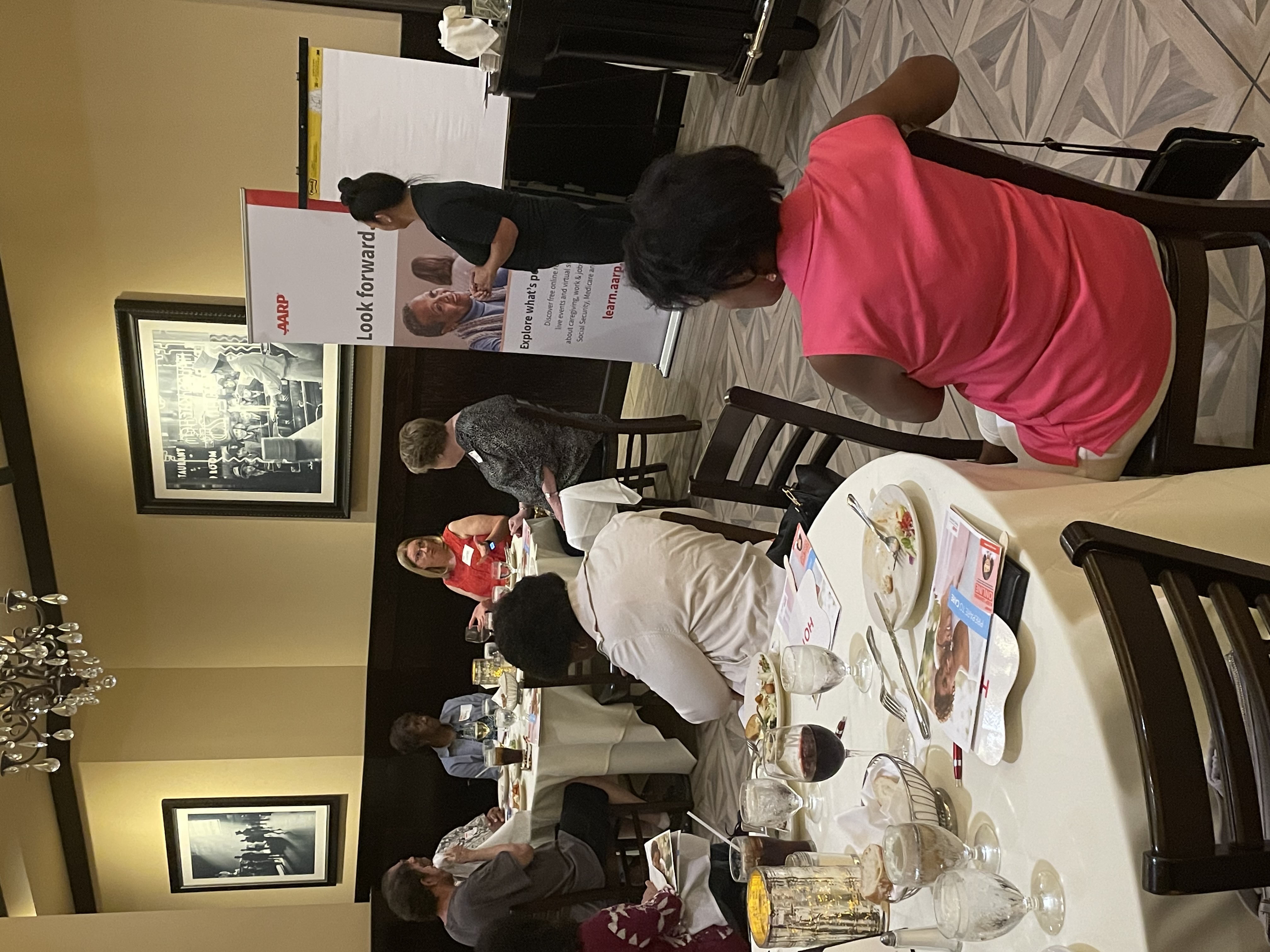AARP Hearing Center

One in five Americans is a family caregiver and over half live in multigenerational households, according to a 2021 AARP Home and Community survey. The need for family caregivers is likely to increase because of two conflicting factors: More than 70 percent of seniors will need some type of long-term care, yet 90 percent of adults over 65 want to remain in their own homes and age in place.
Careversations, a caregiver’s event sponsored by AARP Virginia, was held recently at Maggiano's Little Italy in the Springfield Mall. The facilitator, Kat Tan, explained how to prepare to care for loved ones who need assistance as they age.
Most of the 22 attendees were currently caregivers who needed resources for helping their loved ones age in place while a few people wanted to learn about resources available before the need arises. Tan allowed the people to engage in conversations with each other to find out what was working and what was not working for them. Solutions were often found in the experience of another caregiver.
Tan used the APrepare to Care guide by AARP Family Caregiving Services to frame the event. The guide outlines five topics that will make caregiving more successful: start the conversation; form your team; make a plan; find support and care for yourself. Tan asked which topics were most important to those at the event.
The group wanted more information on the following topics on how to make a plan and find support. Tan tailored her discussion around those two topics and also discussed the importance of caring for yourself.
Under the make a plan topic, Tan and the attendees came up with 14 items that a plan should include. A few of the items discussed were:
· Keep your financial and property information in a separate folder with both paper and online copies;
· Get legal assistance from AARP or online forms from the state of Virginia website for medical directives, wills, trusts, etc.;
· List your backup caregivers;
· Record the schedule of medications;
· Coordinate transportation needs;
· List what your loved ones love to do and love to eat. Include dietary restrictions;
· Find a geriatric doctor.
Tan emphasized that family caregivers need to be flexible with those they are caring for.
Some of the organizations that will assist caregivers when they need to find support include faith-based groups such as local churches and Catholic charities. Most of the clinical websites list resources available to cope with various ailments.
One of the attendees mentioned she was training to be a certified aging in place specialist. Another person said that she used Johns Hopkins’ free service for certain equipment such as wheelchairs, toilet seats and shower chairs.
Examples for self-care included exercising, playing games, talking to friends, knitting, gardening, and using respite care.
The value of aging in place and how to do so successfully was outlined in an article published by the USC Leonard Davis School of Gerontology. The top three reasons were:
· Preserving independence. Aging in place improves the quality of life; keeps some level of control when people live in a familiar space; and enhances happiness in many cases.
· Maintaining community connections. Aging in place continues strong social interactions. Lifelong acquaintances contribute to a better quality of life and can reduce anxiety about aging.
· Balancing budgets – Aging in place can save money if the senior owns their home. They can also start early making necessary modifications.
The entire USC article is at
For AARP Caregiving resources for Virginia, go to: https://states.aarp.org/virginia/caregiver-resources































































